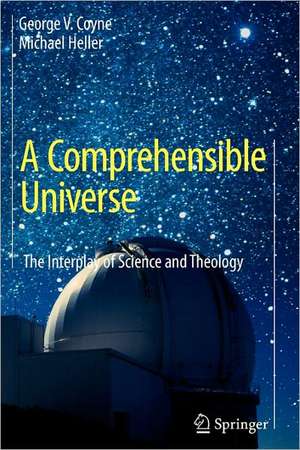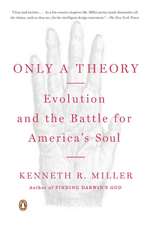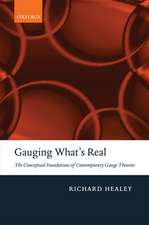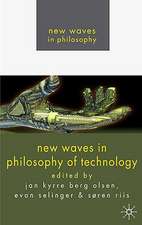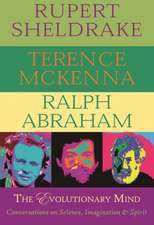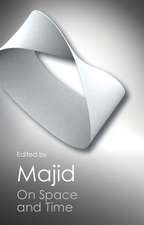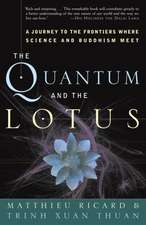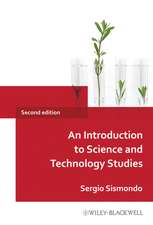A Comprehensible Universe: The Interplay of Science and Theology
Autor George V. Coyne, Michael Helleren Limba Engleză Paperback – 19 oct 2010
After many philosophical and theological adventures the Greek concept of rationality laid the foundations of a revolutionary way of thinking: the scientific method, which transformed the world.
But looking at the newest fruits of the world's rationality - relativity theory, quantum mechanics, the unification of physics, quantum gravity - the question arises: what are the limits of the scientific method? The principal tenet of rationality is that you should never stop asking questions until everything has been answered ...
"A Comprehensible Universe is a thoughtful book by two authors who have professional expertise in physics and astronomy and also in theology. They are exceptionally well informed about the history of the relation between science and theology, and they maintain throughout their discussion a respect for empirical evidence and a dedication to rationality. Even though I do not agree with all of their conclusions on matters of great complexity I am impressed by the fairness of their argumentation."
Abner Shimony, Professor Emeritus of Philosophy and Physics, Boston University
| Toate formatele și edițiile | Preț | Express |
|---|---|---|
| Paperback (1) | 465.15 lei 6-8 săpt. | |
| Springer Berlin, Heidelberg – 19 oct 2010 | 465.15 lei 6-8 săpt. | |
| Hardback (1) | 402.26 lei 38-44 zile | |
| Springer Berlin, Heidelberg – 9 iun 2008 | 402.26 lei 38-44 zile |
Preț: 465.15 lei
Preț vechi: 547.24 lei
-15% Nou
Puncte Express: 698
Preț estimativ în valută:
89.02€ • 92.23$ • 74.29£
89.02€ • 92.23$ • 74.29£
Carte tipărită la comandă
Livrare economică 22 martie-05 aprilie
Preluare comenzi: 021 569.72.76
Specificații
ISBN-13: 9783642096372
ISBN-10: 3642096379
Pagini: 176
Ilustrații: XIV, 160 p.
Dimensiuni: 155 x 235 x 9 mm
Greutate: 0.25 kg
Ediția:Softcover reprint of hardcover 1st ed. 2008
Editura: Springer Berlin, Heidelberg
Colecția Springer
Locul publicării:Berlin, Heidelberg, Germany
ISBN-10: 3642096379
Pagini: 176
Ilustrații: XIV, 160 p.
Dimensiuni: 155 x 235 x 9 mm
Greutate: 0.25 kg
Ediția:Softcover reprint of hardcover 1st ed. 2008
Editura: Springer Berlin, Heidelberg
Colecția Springer
Locul publicării:Berlin, Heidelberg, Germany
Public țintă
ResearchCuprins
The Drama of Rationality.- Discovery that the World is Rational.- Should the Astronomer Look into the Sky?.- Seven Fighters against Thebes.- How to Count the Grains of Sand.- Is the World Rational?.- The Input of Christianity.- Christianity on the Scene.- Theology and Science in the Epoch of the Church Fathers.- The Medieval Contribution.- Discovery of the Method.- Achilles and the Arrow.- The Dynamics of Aristotle.- Three Generations: From Tartaglia to Galileo.- Birth of the Method.- Is the World Mathematical?.- Mathematics at Work.- Afterthoughts.- Afterthoughts.
Recenzii
From the reviews:
"George Coyne and Michael Heller explore the deep roots of the mystery of rationality. The new book emphasizes the need for rational argument in all attempts to understand our world. … It had its origin in a series of university lectures delivered by Michael Heller to students of mathematics, physics, and other natural sciences who … possessed the natural curiosity typical of their future professions. … It aims to open up broader, deeper vistas – to the very roots of rationality." (Joan Robinson, EurekAlert!, June, 2008)
"George Coyne and Michael Heller explore the deep roots of the mystery of rationality. The new book emphasizes the need for rational argument in all attempts to understand our world. … It had its origin in a series of university lectures delivered by Michael Heller to students of mathematics, physics, and other natural sciences who … possessed the natural curiosity typical of their future professions. … It aims to open up broader, deeper vistas – to the very roots of rationality." (Joan Robinson, EurekAlert!, June, 2008)
Notă biografică
George V. Coyne, S.J. Director Emeritus of the Vatican Observatory was born January 19, 1933, in Baltimore. A member of the Society of Jesus since the age of 18, he completed the licentiate in sacred theology at Woodstock College, Woodstock, Maryland, and was ordained a Roman Catholic priest in 1965. He joined the Vatican Observatory as an astronomer in 1969 and became an assistant professor at the LPL in 1970. In 1976 he became a senior research fellow at the LPL and a lecturer in the UA Department of Astronomy. The following year he served as Director of the UA's Catalina Observatory and as Associate Director of the LPL.
Coyne became Director of the Vatican Observatory in 1978, and also Associate Director of the UA Steward Observatory. During 1979-80 he served as Acting Director and Head of the UA Steward Observatory and the Astronomy Department, and thereafter he continued as an adjunct professor in the University of Arizona Astronomy Department. As Director of the Vatican Observatory he was a driving force in several new educational and research initiatives. He retired as Director in August 2006, and after spending a sabbatical year in Rayleigh, NC, he remains on the staff of the Vatican Observatory. Among his honors has been the naming of a comet after him.
Coyne's research interests have been in polarimetric studies of various subjects including the interstellar medium, stars with extended atmospheres and Seyfert galaxies, which are a group of spiral galaxies with very small and unusually bright star like centers. (Polarimetry is the technique of measuring or analyzing the polarization of light. When light rays exhibit different properties in different directions, the light is said to be polarized.) Most recently he has been studying the polarization produced in cataclysmic variables, or interacting binary star systems that give off sudden bursts of intense energy, and dust about young stars. He is an active member of the International Astronomical Union, the American Astronomical Society, the Astronomical Society of the Pacific, the American Physical Society and the Optical Society of America.
Michael Heller is professor at the Faculty of Philosophy of the Pontifical Academy of Theology, Krakow, Poland and the adjoined member of the Vatican Observatory (which is an astronomical observatory). He is the winner of the 2008 Templeton Prize, the richest award made to an individual by a philanthropic organization.The John Templeton Foundation, which awards grants to encourage scientific discovery on the "big questions" in science and philosophy, commended Professor Heller for his extensive writings that have "evoked new and important consideration of some of humankind's most profound concepts."
Prof. Heller is Ordinary Member of the Pontifical Academy of Sciences (Rome), elected in 1991 and also a member of the International Astronomical Union, International Society for General Relativity and Gravitation, European Physical Society, and the International Society for the Study of Time
His fields of scientific research include: Relativistic physics, in particular relativistic cosmology; geometric methods in relativistic physics, Philosophy and history of science, Science and theology
Coyne became Director of the Vatican Observatory in 1978, and also Associate Director of the UA Steward Observatory. During 1979-80 he served as Acting Director and Head of the UA Steward Observatory and the Astronomy Department, and thereafter he continued as an adjunct professor in the University of Arizona Astronomy Department. As Director of the Vatican Observatory he was a driving force in several new educational and research initiatives. He retired as Director in August 2006, and after spending a sabbatical year in Rayleigh, NC, he remains on the staff of the Vatican Observatory. Among his honors has been the naming of a comet after him.
Coyne's research interests have been in polarimetric studies of various subjects including the interstellar medium, stars with extended atmospheres and Seyfert galaxies, which are a group of spiral galaxies with very small and unusually bright star like centers. (Polarimetry is the technique of measuring or analyzing the polarization of light. When light rays exhibit different properties in different directions, the light is said to be polarized.) Most recently he has been studying the polarization produced in cataclysmic variables, or interacting binary star systems that give off sudden bursts of intense energy, and dust about young stars. He is an active member of the International Astronomical Union, the American Astronomical Society, the Astronomical Society of the Pacific, the American Physical Society and the Optical Society of America.
Michael Heller is professor at the Faculty of Philosophy of the Pontifical Academy of Theology, Krakow, Poland and the adjoined member of the Vatican Observatory (which is an astronomical observatory). He is the winner of the 2008 Templeton Prize, the richest award made to an individual by a philanthropic organization.The John Templeton Foundation, which awards grants to encourage scientific discovery on the "big questions" in science and philosophy, commended Professor Heller for his extensive writings that have "evoked new and important consideration of some of humankind's most profound concepts."
Prof. Heller is Ordinary Member of the Pontifical Academy of Sciences (Rome), elected in 1991 and also a member of the International Astronomical Union, International Society for General Relativity and Gravitation, European Physical Society, and the International Society for the Study of Time
His fields of scientific research include: Relativistic physics, in particular relativistic cosmology; geometric methods in relativistic physics, Philosophy and history of science, Science and theology
Textul de pe ultima copertă
Why is our world comprehensible? This question seems so trivial that few people have dared to ask it. In this book we explore the deep roots of the mystery of rationality. The inquiry into the rationality of the world began over two-and-a-half-thousand years ago, when a few courageous people tried to understand the world with the help of reason alone, rejecting the comforting fabric of myth and legend.
After many philosophical and theological adventures the Greek concept of rationality laid the foundations of a revolutionary way of thinking: the scientific method, which transformed the world.
But looking at the newest fruits of the world's rationality - relativity theory, quantum mechanics, the unification of physics, quantum gravity - the question arises: what are the limits of the scientific method? The principal tenet of rationality is that you should never stop asking questions until everything has been answered ...
"The Comprehensible Universe is a thoughtful book by two authors who have professional expertise in physics and astronomy and also in theology. They are exceptionally well informed about the history of the relation between science and theology, and they maintain throughout their discussion a respect for empirical evidence and a dedication to rationality. Even though I do not agree with all of their conclusions on matters of great complexity I am impressed by the fairness of their argumentation."
Abner Shimony, Professor Emeritus of Philosophy and Physics, Boston University
After many philosophical and theological adventures the Greek concept of rationality laid the foundations of a revolutionary way of thinking: the scientific method, which transformed the world.
But looking at the newest fruits of the world's rationality - relativity theory, quantum mechanics, the unification of physics, quantum gravity - the question arises: what are the limits of the scientific method? The principal tenet of rationality is that you should never stop asking questions until everything has been answered ...
"The Comprehensible Universe is a thoughtful book by two authors who have professional expertise in physics and astronomy and also in theology. They are exceptionally well informed about the history of the relation between science and theology, and they maintain throughout their discussion a respect for empirical evidence and a dedication to rationality. Even though I do not agree with all of their conclusions on matters of great complexity I am impressed by the fairness of their argumentation."
Abner Shimony, Professor Emeritus of Philosophy and Physics, Boston University
Caracteristici
Details the birth of the scientific method Takes a close look at the fruits of rationality Offers historical and philosophical perspective Authors are eminent cosmologists and theologists Includes supplementary material: sn.pub/extras
